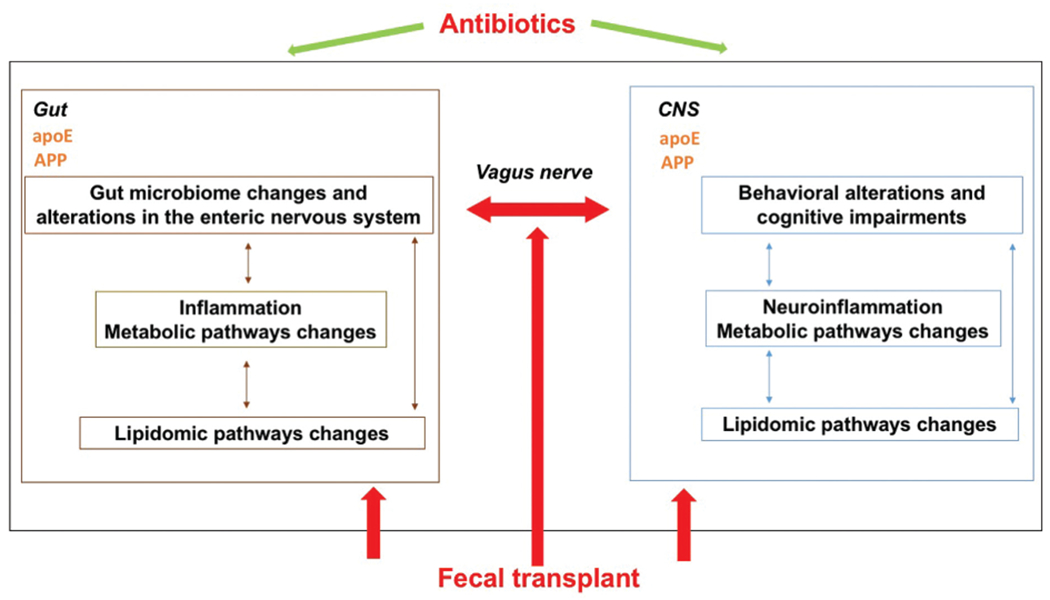Fig. 2.

The gut–brain axis might play an important role in AD as well. APP and apoE are both expressed in the gut. The gut microbiome influences the severity of AD and the composition of the gut microbiome is associated with AD in humans and mouse models. In addition, transplanting microbiomes from AppNL-G-F mice, and from AppNL-G-F mice expressing E4, into germ-free wild-type mice yields donor genotype–dependent differences in recipient mouse behavioral and cognitive performance and amyloid pathology in brain. An antibiotic cocktail (ABX)–perturbed gut microbiome is associated with reduced amyloid-β (Aβ) plaque pathology and astrogliosis in the male, but not female, amyloid precursor protein (APP)SWE/presenilin 1 (PS1)ΔE9 and APPSWE/PS1L166P (APPPS1-21) transgenic models of Aβ amyloidosis. The data suggest that the link between the gut microbiome and behavior is genotype- and sex-dependent. Consequently, host genotype and sex may need to be carefully considered when developing novel therapeutic strategies targeting the gut microbiome in AD and other neurodegenerative disorders.
